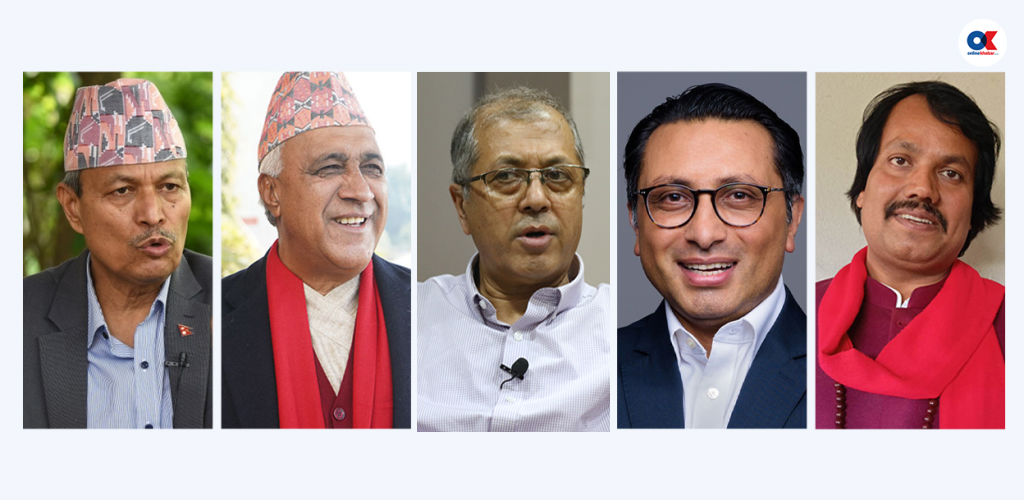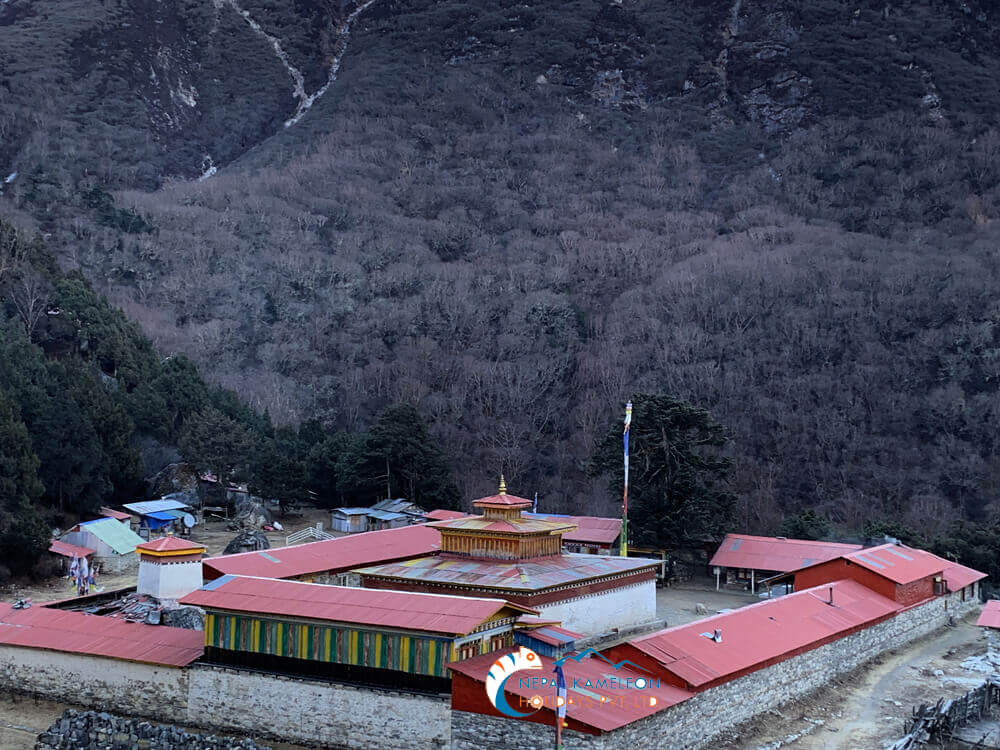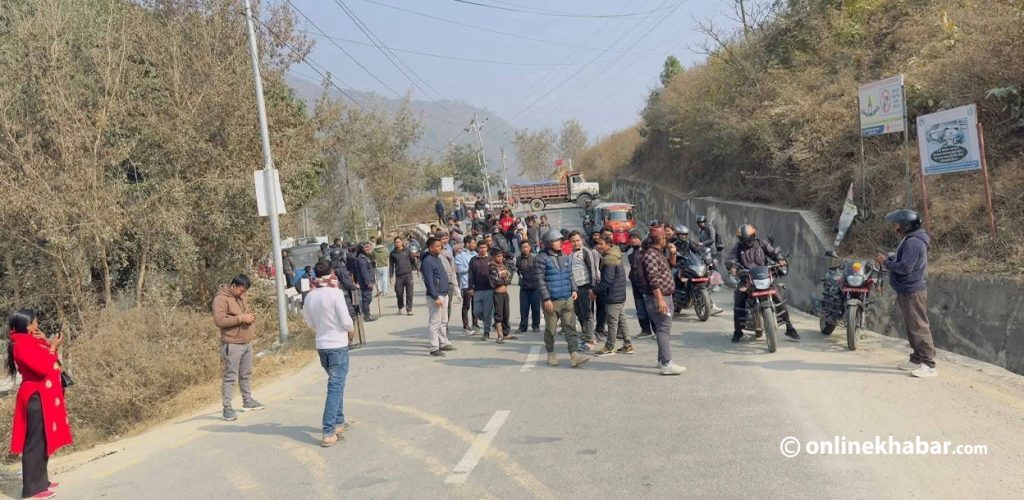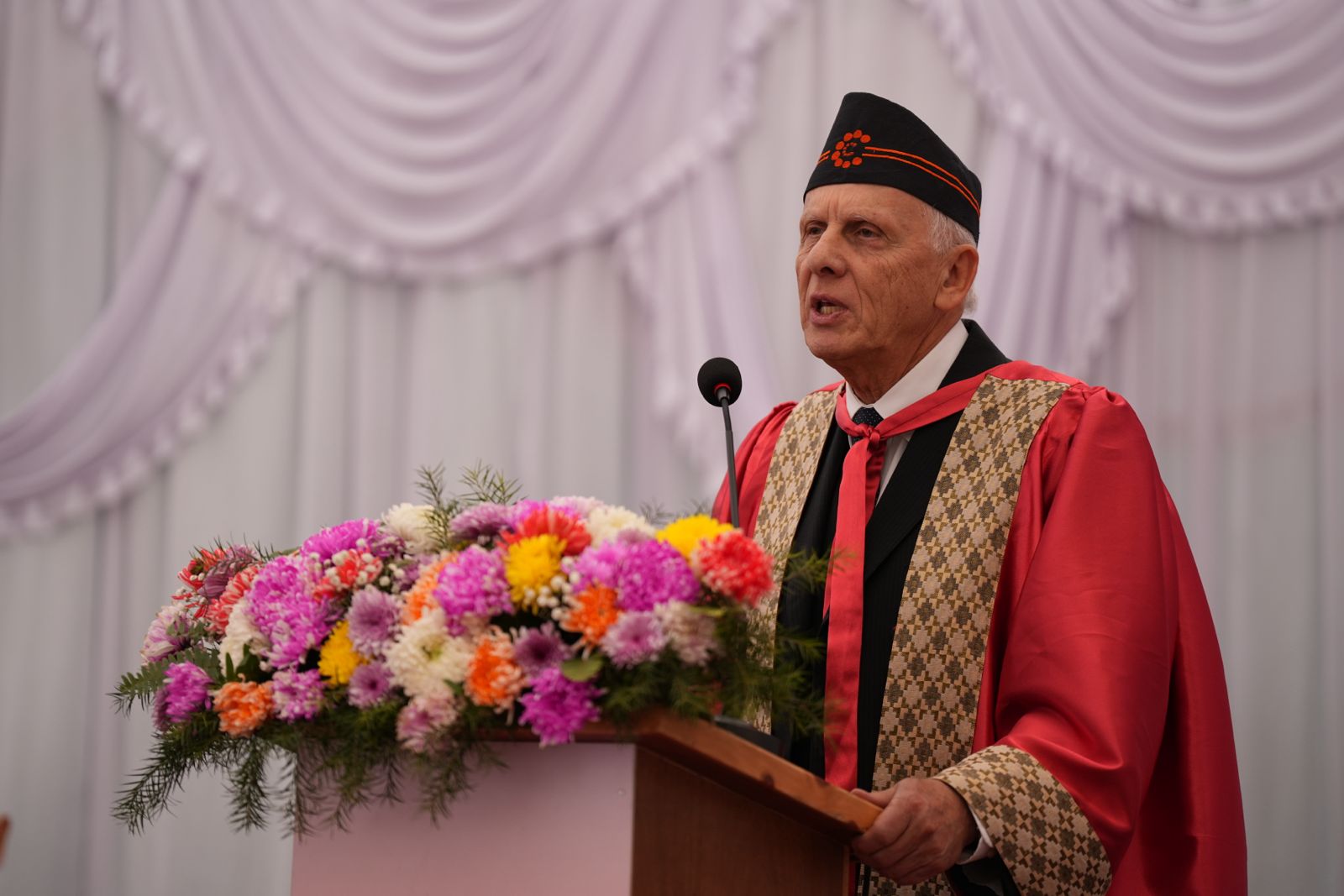The proposed Millennium Challenge Corporation (MCC) grant has been the talk of the town over the past few weeks in Nepal. Various groups have staged multiple protests across the country, mostly in Kathmandu. Protests have taken place near the Parliament building, the US Embassy and the prime minister’s residence too.
The US government’s Millennium Challenge Corporation (MCC) and the Government of Nepal on September 14, 2017, signed a $500 million compact to spur economic growth and reduce poverty in Nepal. The agreement was signed by Gyanendra Bahadur Karki, the then finance minister under the Sher Bahadur Deuba government, on behalf of Nepal. However, it is yet to be passed by the House of Representatives due to concerns raised by politicians, lawmakers and the general public. The parliamentary endorsement is a mandatory requirement for the deal’s implementation.
With hints coming from the government that the issue will be discussed in the forthcoming session of the House of Representatives, protests have intensified in the country. Further, MCC’s vice-president Fatema Z Sumar and deputy vice-president Johnathon Brooks have arrived in Kathmandu on September 9 and met senior political leaders of Nepal from both ruling and opposition sides.
This has caused a hullaballoo as everyone seems to be talking about the MCC. Opinions vary from one individual to other. But, what exactly is this whole issue about? We try to answer today.
What is the MCC?
The Millennium Challenge Corporation (MCC) says it is an ‘innovative and independent’ US foreign assistance agency that is helping lead the fight against global poverty. It was created by the US Congress in January 2004 with the aim of providing time-limited grants promoting economic growth, reducing poverty, and strengthening institutions.
How is it different from other aid programmes?
The compact aims to create jobs in the market and promote growth through infrastructure. The projects will use Nepali human resources to undertake the project. Through this, it also wants to ‘incentivise policy and institutional reform’ to create a better future.
How much is Nepal receiving?
The compact is giving USD 500 million (approximately Rs 58.5 billion, to Nepal as a grant. However, if Nepal’s House of Representatives passes the compact, Nepal will have to pledge USD 130 million for the projects that will be carried out through the MCC grant. If accepted, this will be the largest grant Nepal has ever received.
What projects will the funds be used for?
The funds will be used for projects related to energy and roadways. According to the plan, USD 500 million will be used to set up a 400KV transmission line on the Lapsiphedi-Galchhi-Damauli-Sunawal power corridor.
As per the deal, the funds will be spent on setting up a 400KV transmission line running 400 kilometres on the Lapsiphedi-Galchhi-Damauli-Sunawal power corridor. Three substations will also be built that will connect to Nepal-India cross-border transmission line with India in Rupandhei. The remaining USD 130 million will be used to maintain roads along the East-West Highway.
How long does Nepal have to complete the project?
Five years. Compacts must be implemented within five years from the entry into force date, and there is no possibility of receiving extra funding.

What is the controversy all about then?
After the agreement was signed, the MCC deal was registered at the House of Representatives for ratification. But, it has not been presented for the House’s approval yet.
Lawmakers from the erstwhile Nepal Communist Party, which is now split into three parties, in the past have not been happy with some of the provisions that are mentioned in the agreement and want amendments. In February 2020, a three-member high-level task force of the party had suggested the country should not get into it without amendments. Reports suggest, Dev Gurung, the then party’s chief whip, had requested the then speaker Krishna Bahadur Mahara to delay the compact’s ratification.
The issue grew deeper when David J Ranz, a US State Department official, during his visit to Nepal in May 2019, said the MCC was a crucial part of the Indo-Pacific Strategy. After that, leaders within NCP started to raise concerns, after which the compact could never be put before the House for ratification.
Bhim Rawal of the CPN-UML is a major leader who has time and raised his voice against the ratification of the compact. He says without amendments, the compact will be dangerous for Nepal. He says that the MCC is above Nepal law and constitution and that the government should present all the documents of the agreement before the House. He claims that only a section of the agreement has been put before the House and adds that the government is hiding the rest of it.
He further questions the need for ratification when other grants and loans did not need to be ratified in the past. His other concern is about sovereignty coming under threat as Nepali officials had to take orders from an international organisation to work on a project in Nepal.
“People say that this will change the face of the country. But, we’ve been wasting billions of rupees in Nepal. Major corporations are avoiding tax. There are ways that we can build a better future. For that, we don’t have to disregard sovereignty,” he said speaking at the House of Representatives last month.
What amendments are sought?
Rawal and other opponents of the deal have not given exact details, but they say amendments will do good for the national interest. Rawal says unless that is done, Nepal will not get to use the transmission line and that there are many vague statements that mean the line could be used by the MCC for years to come.
Will the MCC amend some provision?
The MCC has made it clear that the signed MCC Nepal Compact cannot be amended “at this time”.
Will US send troops to Nepal?
Nepali politicians claim that the US will send troops to Nepal. But, the MCC says the deal is not a military alliance nor is it part of the Indo-Pacific Strategy.
But, it apparently contradicts Acting Deputy Assistant Secretary for South Asia at the US Department of State David J Ranz’ 2019 statement. This has caused most of the problems in the case of Nepal.
What is the Indo-Pacific Strategy?
The Indo-Pacific Strategy is a programme of the US Department of Defense. According to a report published in June 2019, the strategy envisions a linkage between security, governance and economics but it did not state anything about a military alliance.
However, various US officials have stated that the MCC is part of the Indo-Pacific Strategy which has caused a lot of problem. But, these officials have clearly stated that ratifying the MCC does not mean that Nepal will have to join a military alliance.
Has any country said no to the MCC?
Yes. The Sri Lankan government has decided not to sign the $480 million Millennium Challenge Corporation (MCC) agreement with the US, taking into consideration the recommendations of a committee that found some of its features threaten the national security and welfare of the island nation.
What do economists and stakeholders say?
Most economists say there is no harm in accepting the grant. They say that it will be helpful for the future development of the country as it also deals with capacity building and training. Swarnim Wagle claims that the issue has been used for political agendas. He says that a proper discourse needs to take place for people to discuss the pros and cons of the compact.
Also, the vice-chairperson of the National Planning Commission, economist Biswo Poudel in an interview with Kantipur says people who were against MCC did not understand what the compact was about. He further adds these people are objecting but are not trying to find an alternative to the MCC. He says the project will help in the upliftment of Nepal.
Former Nepal Electricity Authority MD Hitendra Dev Shakya tells Nepali Times that the MCC project will form a backbone of Nepal’s electricity grid; and by linking it to the Indian grid, it will be more robust and flexible, allowing load sharing and management. The MCC-funded transmission lines are also critical for meeting Kathmandu valley’s future demand growth, to transfer the power generated in eastern Nepal to the western half of the country during the monsoon, and from west to east in the winter.
Foreign affairs experts say that the reason why the MCC has been caught in limbo is domestic competition between Nepal’s leaders and international geopolitics. Experts think that Nepal might be trying to please China by not ratifying the compact.
Is Nepal trying to please China by withdrawing from the MCC?
This is unclear. But, with most communist leaders against it, it is likely. However, Chinese Ambassador to Nepal Hou Yanqi said that Beijing welcomes any international assistance to Nepal if it is for economic cooperation.
- Read the MCC grant agreement on your own
- Read a recent clarification letter sent by the MCC to Nepal

























